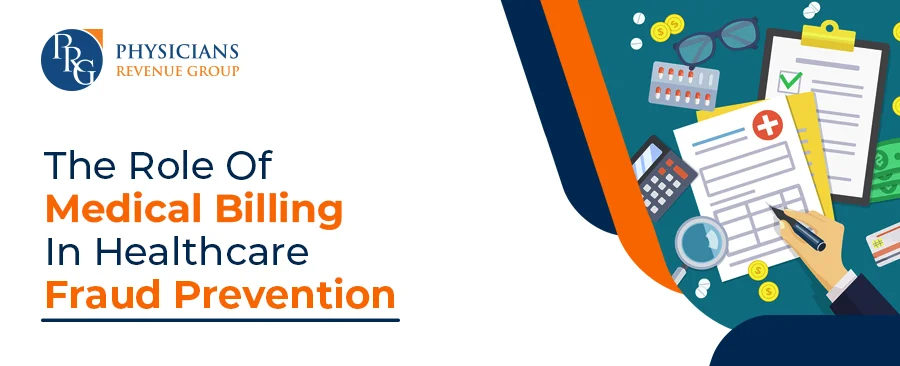
Email: info@prgmd.com | Call: +1 (630) 242-6474
Business hours: 9:00 to 5:00 | Monday to Friday
Email: info@prgmd.com | Call: +1 (630) 242-6474
Business hours: 9:00 to 5:00 | Monday to Friday

Table of Contents
ToggleMost healthcare providers are struggling daily with fraud. Such frauds cost the US healthcare industry over 3 to 15 percent of the total healthcare expenditure in the country. Thus, healthcare fraud prevention is crucial to mitigate the risks associated with it.
Let’s explore the following:
What is healthcare fraud?
Fraud prevention in healthcare is the top priority of medical providers and insurance companies – both are at the receiving end of disadvantages related to fraudulent healthcare activities. The first step is to minimize and remove complexities from medical billing processes.
Creating a robust healthcare fraud prevention compliance program is vital to prevent fraud and abuse. Furthermore, a compliance program is also a tool to identify fraud.
A robust compliance program includes the following:
Healthcare fraud prevention becomes incredibly easy with the introduction of compliance programs. Furthermore, an additional factor includes the improvement of a healthcare provider’s medical billing and coding procedures.
Physicians are fully aware of the time needed for diagnosing and treating patients for a particular condition; thus, they can detect excessive billing.
The particular information empowers a group of physicians to identify the ideal number of patients treated for a condition in a day. Upcoding is reporting a higher level of service than what can be supported.
Insurance companies pay more for treating severe conditions, and upcoding for such instances helps raise a practice’s revenue. The OIG (Office of Inspector General) holds a list of codes for checking upcoding. They may conduct a full audit of a healthcare practice. Such audits check if the number of claims in submission is more than expected. Finally, physicians must avoid upcoding as a practice, as such practices can be heavily fined if and when OIC finds intentional upcoding of claims.
Different types of medical claims are put to submission without medical records. Such instances allow physicians to increase their reimbursements by manipulating claims without even triggering an audit.
Nonetheless, omission of critical information from claims to cover errors and altering medical records to increase revenue intentionally are illegal activities and, thus, should be avoided.
Fraud prevention is about establishing countermeasures for mitigating the impact of fraudulent activities on your business operations. At the same time, fraud detection is the first step in identifying risks.
Blockchain technology and Artificial intelligence are both helpful in preventing fraud in medical billing. For instance, ML (machine learning) algorithms can analyze massive chunks of data and detect patterns in addition to anomalies that indicate any cases of fraudulent activities.
The A/R (accounts receivable) follow-up team handles the denied claims and efficiently re-opens them to receive maximum reimbursements from insurance providers.
Share:
Categories
Recently Added

What is an ABN in medical billing?

What does a Clearinghouse do During Claims Submission?

What is EOR in Medical Billing?
We Would Love to Assist You!
We treat your data confidentially and don’t share any information with a third party.